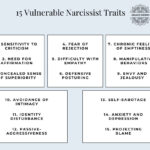Emotional Intelligence in Relationships
Emotional intelligence in relationships is a crucial factor that determines the quality of your relationships. Without it, relationships can become strained and difficult to maintain.
Many of us have experienced the pain and confusion that can arise when one or both parties fail to understand and manage emotions effectively.
Having an understanding of what emotional intelligence is, how it works, and how to foster it can make all the difference when trying to build solid bonds with your loved ones.
In this blog post, we will explore why emotional intelligence in relationships matters and discuss tips on how you can develop your own skills with regard to this important factor.
What is emotional intelligence in relationships?

Emotional intelligence (EI) is a set of skills that involves the ability to perceive, understand, manage, and express emotions effectively. There are five pillars of emotional intelligence that work together to create a person’s overall emotional intelligence:
- Self-awareness: The ability to recognize and understand one’s own emotions and how they affect thoughts, behavior, and interactions with others.
- Self-regulation: The ability to manage and control one’s own emotions, thoughts, and behavior in response to different situations and circumstances.
- Motivation: The ability to use emotions to drive and guide goal-oriented behavior, overcome obstacles, and maintain positive momentum.
- Empathy: The ability to understand and recognize the emotions and perspectives of others and respond in a way that is compassionate, supportive, and effective.
- Social skills: The ability to communicate effectively, build and maintain relationships, work collaboratively, and influence others positively.
These five pillars of emotional intelligence are interconnected, and a high level of emotional intelligence involves developing all of these skills to create a well-rounded and effective approach to managing emotions and relationships.
By improving emotional intelligence, individuals can become more successful and satisfied in their personal and professional lives, with better communication, stronger relationships, and more effective problem-solving skills.
Understanding the importance of emotional intelligence in relationships
Emotional intelligence in relationships is crucial for building and maintaining healthy connections with others. Research shows that there’s a correlation between marital satisfaction and emotional intelligence. This skill allows individuals to navigate conflicts and difficult situations with compassion and understanding.
For example, if a friend or partner is upset, an emotionally intelligent person might take the time to listen actively and ask questions to understand their perspective, rather than getting defensive or dismissive.
Additionally, an emotionally intelligent person might recognize their own triggers and work to manage their own emotions during heated discussions.
By practicing emotional intelligence in relationships, individuals can build trust, improve communication, and deepen connections with the people around them.
Recognizing the signs that show a lack of emotional intelligence in relationships
When it comes to recognizing signs of low emotional intelligence in relationships, there are a few key traits to look out for.
- Difficulty regulating emotions: People with low emotional intelligence often struggle to manage their own emotions, resulting in outbursts, mood swings, or impulsive behavior.
- Lack of empathy: They may struggle to understand and relate to the emotions of others, resulting in a lack of compassion or an inability to offer support or help.
- Poor communication: They may have difficulty expressing their emotions and thoughts effectively, resulting in misunderstandings or conflicts with others.
- Blaming others: They may have a tendency to blame others for their problems or failures, rather than taking responsibility for their own actions.
- Ignoring feedback: They may be resistant to feedback or criticism, and struggle to accept constructive criticism or learn from mistakes.
Recognizing these signs of a lack of emotional intelligence can be challenging, but it’s important to pay attention to how people interact with others and how they respond to different situations.
People with low emotional intelligence may struggle in social situations or may have difficulty maintaining relationships with others.
They may also have trouble adapting to new situations or may struggle to cope with stress and change.
If you notice any of these signs in yourself or others, it may be helpful to seek out resources and support to improve emotional intelligence and build stronger connections with others.
The following strategies can help you improve your emotional intelligence in relationships:
- active listening
- demonstrating empathy
- setting boundaries
- developing conflict resolution skills
- sharing feelings openly and honestly
- actively seeking feedback from your partner
- seeking professional help like emotional intelligence coaching
Exploring how to develop strong emotional intelligence
Here are some practical ways to develop strong emotional intelligence in personal relationships:
- Listening without judgment: Avoid making assumptions or jumping to conclusions, and instead seek to understand their perspective. This can help build trust and strengthen the emotional connection in the relationship.
- Identify and manage your own emotions: It’s important to be aware of your own emotions and how they may be impacting the relationship. Practice techniques like deep breathing to help regulate your emotions. Incorporating meditation in daily life as part of your routine is also an effective way to better understand and manage your emotions.
- Show empathy: Empathy is the ability to understand and share the emotions of others. Start putting yourself in the other person’s shoes and show compassion and understanding.
- Effective communication: This involves expressing your thoughts and emotions clearly and respectfully, while also listening to and validating the other person’s perspective.
- Practice forgiveness: Forgiveness involves letting go of grudges and resentments, and choosing to move forward in a positive way. Letting go of resentment can help build stronger and more resilient relationships and cultivates a sense of inner peace.
Creating healthy communication strategies

Creating healthy communication strategies in relationships is crucial for building a strong and lasting connection. One key aspect of healthy communication is active listening. This means giving your partner your full attention when they are speaking, focusing on what they are saying and how they are feeling, and trying to understand their perspective.
You should also be open and honest with your partner, expressing your own thoughts and feelings in a clear and respectful manner. Avoid being defensive or confrontational, and instead, strive to find common ground and work together to resolve any issues.
Related: Social Awareness & Emotional Intelligence
Practicing self-care and setting boundaries in relationships
Another important aspect of healthy communication in relationships is setting boundaries. This means being clear about your own needs and expectations and respecting those of your partner.
You should also be willing to compromise and find mutually agreeable solutions to any conflicts that may arise. Additionally, it’s important to avoid attacking your partner or making them feel defensive, as this can lead to further misunderstandings and conflict.
By creating a safe and respectful space for open and honest communication, you can strengthen the emotional connection in your relationship and build a foundation for a happy and fulfilling partnership.
Finding support outside of your relationship to maintain emotional growth
Maintaining emotional growth is an ongoing process that requires constant attention and effort. While a relationship can certainly provide a supportive and nurturing environment, it’s also important to seek out support from sources outside of your partnership. This can include friends, family members, therapists, life coaches, or support groups.
One reason why it’s important to find support outside of your relationship is that it can help prevent emotional dependence on your partner. Relying solely on your partner for emotional support can create an unhealthy dynamic in the relationship, leading to feelings of suffocation or resentment.
By seeking support from other sources, you can maintain a healthy balance of independence and interdependence in your relationship.
Another benefit of finding support outside of your relationship is that it can provide fresh perspectives and insights into your own emotional growth. Talking to people who have different experiences and perspectives can help you gain new insights into your own emotions and behaviors, allowing you to continue growing and developing as a person.
Final thoughts on emotional intelligence in relationships
Emotional intelligence plays an integral role in any type of relationship. Following the strategies mentioned in this blog post to help you increase this valuable trait is key to developing and maintaining a positive relationship.
While learning to become more emotionally intelligent can be challenging, it will ultimately lead to fulfilling relationships between partners, friends, families, and coworkers.
Take the time today to examine how you interact with your surroundings and adjust any habits which are preventing you from creating meaningful connections with those around you.
If you need help or want to get started on the path of enhancing your emotional intelligence, book a free call and begin taking steps toward building healthier relationships now!
FAQs
Emotional intelligence in relationships is extremely important as it determines the quality of your relationship dynamics. The five elements that make up the skill of emotional intelligence are self-awareness, self-management, motivation, empathy, and social skills.
Emotional intelligence improves relationships as people with high emotional quotient (EQ) are more self-aware of their emotions, strengths, weaknesses, and triggers. They’re better able to manage their emotions and can communicate their feelings effectively. Emotional intelligence in relationships also promotes authenticity and stronger bonds between two parties.
Here’s how you can practice emotional intelligence in your relationships:
1. Active listening without judgement
2. Demonstrating empathy
3. Identifying triggers
4. Managing impulses
5. Setting boundaries
6. Seeking constructive feedback
7. Solution-oriented instead of blaming
8. Seek professional guidance
Related:
How does self awareness help boost your confidence?
Why is emotional intelligence so important?
Conquer Fear Of Public Speaking Through Emotional Intelligence
How mindfulness empowers us







